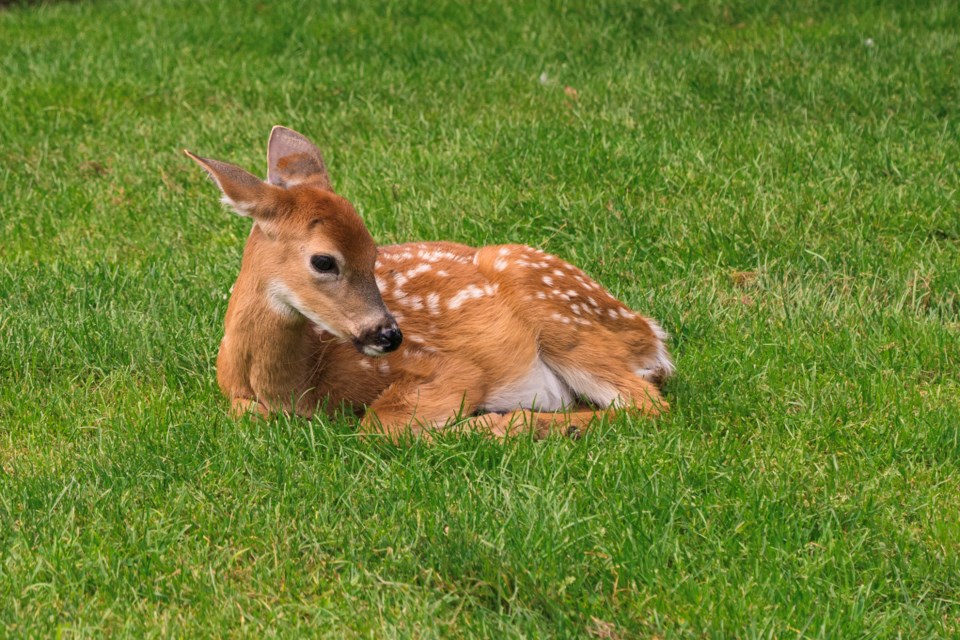During spring, you are much more likely to encounter a baby wild animal, though you shouldn’t approach it even if it is alone. Contact with wildlife is not only harmful to the wild animal but is potentially harmful to humans, too. Wildlife can carry diseases that are transmittable to people, such as rabies and the West Nile Virus.
There are also legal implications for taking a wild animal home. Only recognized wildlife rehabilitators are licensed to care for an orphaned and injured wild animal, as they have the expertise and facility to care for the wild animal. The only times a young wild animal should be picked up is if the parent is found dead nearby, or if the wild animal is found in an unnatural situation, like a bird on your doorstep. If this ever happens, you can move the baby bird to the closest suitable habitat.
The Ministry of Environment has a straightforward message for well-intentioned people who wish to rescue what appears to be young, orphaned wildlife: please don’t touch them. Many different wild animals leave their young while they forage for food, or to keep them safe from predators. This leaves the young wildlife at risk to children, pets, or even well-intentioned adults. Often, the young wild animal is not abandoned at all – the mother is often close and sometimes even watching.
While attempting to “help” wildlife may seem like the moral thing to do, contact with humans can decrease a young wild animal’s chance of survival by a significant amount. A good rule to follow if ever put in a situation like this is: unless you believe the young wildlife is in immediate danger, always call for advice before removing that wild animal from the wild.
“The best way to save most wildlife is by providing them with the space and respect they deserve and by letting nature take care of nature,” said Ted Glass- Conservation officer from Kindersley.
Before you decide that a deer fawn is abandoned, ask yourself:
• Has it been lying in the same position for more than 10 hours?
• Is it vocal?
• Is it covered in insects?
• Is it wet, possibly covered by the morning dew?
If your answer to any of these questions was yes, then the wildlife may have been there for a long time and needs your help. If you see obvious signs of injury on the animal, please contact your local conservation officer.
The biggest thing to remember is to give wildlife – of all ages – the space and respect they deserve.




